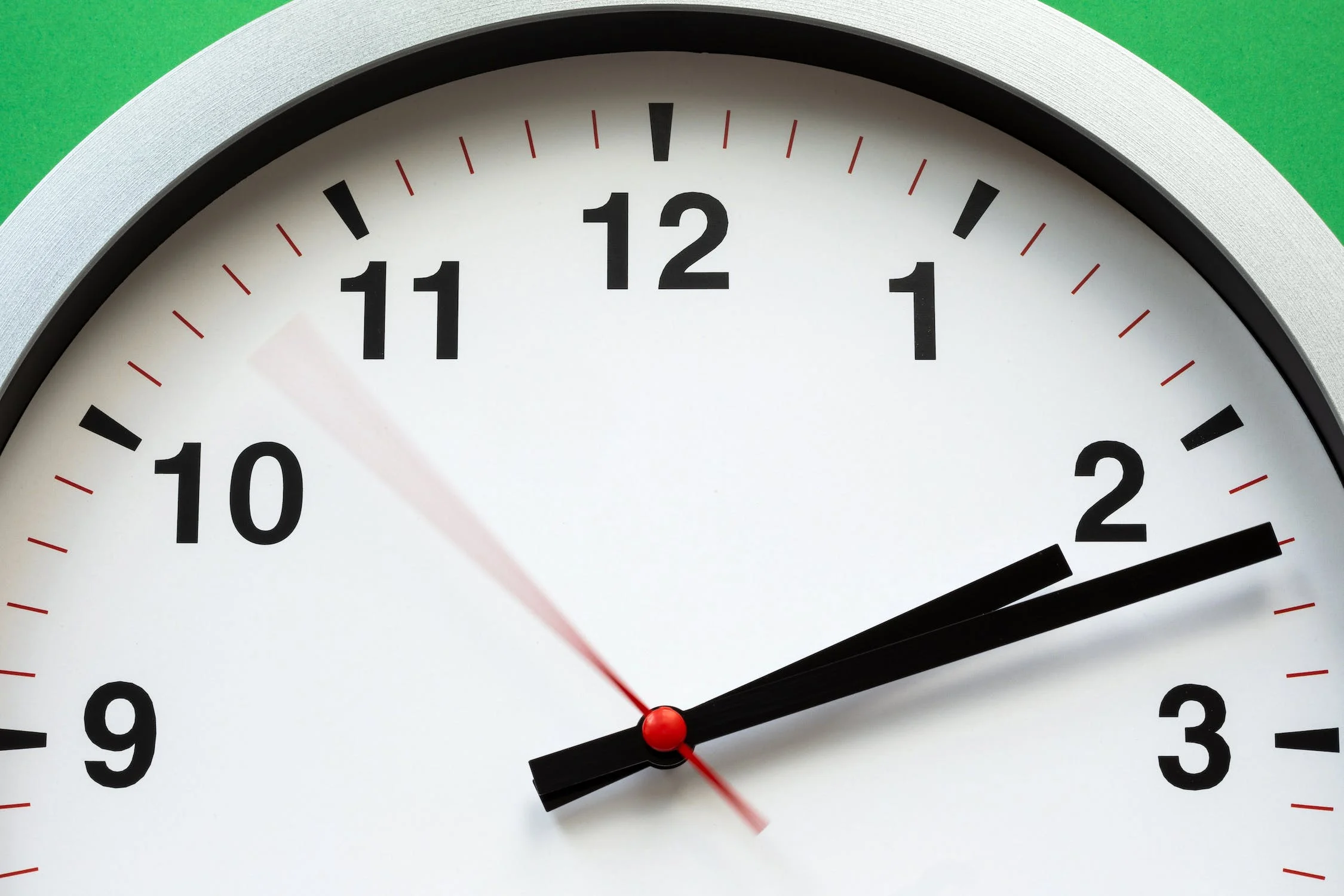You are now leaving the Bright website and entering a third-party website. Bright has no control over the content, products, or services offered, nor the security or privacy of information transmitted to others via their website. We recommend that you review the privacy policy of the site you are entering. Bright does not guarantee or endorse the products, information, or recommendations provided on any third-party website.
Have you ever found yourself caught up in the whirlwind of life's demands, only to realize that you've forgotten to make a payment on your credit card? If you have, you're not alone. Life can get hectic, and sometimes, despite our best intentions, we miss due dates. But how late is a "late payment" for your credit card? Is there a grace period, or are you in trouble the moment the clock strikes midnight on your due date?
This comprehensive article delves into the world of late credit card payments, explores what happens when you miss a due date and provides practical insights and examples to help you navigate this financial terrain.
Read more: What's the best strategy to pay off Debt?
What does "Late Payment" really mean?
A "late payment" means you've missed the due date for your credit card payment. It's when you don't pay at least the minimum amount required by the due date specified on your billing statement. Your credit card company sets this due date on the same day each month. In simple terms, it's paying overdue or after the due date.
Now, let's answer the burning question that often keeps credit card holders on their toes: How late is a late payment? The answer is straightforward and complex, depending on the context.
"Take control of your finances today with Bright Money! Sign up now to start your journey toward financial freedom and smart money management."
# Consequences of Late Payments
Now that you understand the concept of a grace period let's explore what happens if you miss the deadline and venture into "late payment" territory. When you cross that line, a series of events can unfold, affecting your finances and credit score.

1. Late Fees
One of the most immediate consequences of a late payment is the imposition of late fees. Credit card issuers typically charge a late fee when you miss your payment deadline. The amount of this fee can vary but is often around $25 to $40. If you consistently miss payments, these fees can add up, taking a toll on your finances.
Example: Sarah, a college student, has a credit card with a due date of the 5th of every month. One busy month, she forgets to make her payment until the 10th. As a result, her credit card company charges her a late fee of $30.[2]
2. Interest Accrual
Beyond late fees, your credit card issuer will start accruing interest on the outstanding balance you have yet to pay on time. This interest is typically calculated using your card's annual percentage rate (APR). Remember that credit card APRs can be pretty high, often exceeding 20%. So, the longer you delay your payment, the more interest you'll owe.
Example: Mark, a freelancer, missed his credit card payment due on the 15th of the month. His APR is 18%. He had a balance of $1,000 that he should have paid earlier. For a month, he accrued $15 in interest.[2]
"Don't let your financial worries hold you back. Join Bright Money today and discover a brighter financial future. Sign up now!"
3. Negative Impact on Credit Score
Late payments are reported to credit bureaus, which can have a lasting effect on your credit score. Your payment history is crucial in determining your creditworthiness, accounting for about 35% of your FICO credit score. A single late payment can cause your credit score to drop, making obtaining favorable loan terms or credit in the future more challenging.
Example: James, a recent graduate, missed two consecutive credit card payments due to a tight budget. As a result, his credit score dipped by 40 points, making it harder for him to secure a car loan with a reasonable interest rate.[2]
4. Loss of Introductory Offers
If you have a credit card with a 0% introductory APR on balance transfers or purchases, missing payments can result in the loss of these promotional offers. This means you'll start incurring interest on your outstanding balance, which can be financially burdensome.
Example: Lisa transferred her high-interest credit card balance to a new card with a 0% introductory APR for 12 months. However, she missed a payment during the initial period, causing her to lose the promotional APR, and now she's paying the regular, higher interest rate.[2]
5. Potential for Increased APR
Some credit card agreements include penalty APR clauses. If you miss payments consistently or violate the card's terms, your card issuer may increase your APR to a higher, punitive rate. This can significantly impact the cost of carrying a balance on your card.
Example: Mike had a penalty APR clause in his credit card agreement. After missing three consecutive payments, his card issuer raised his APR from 17% to a staggering 29%, making it much more expensive for him to carry a balance.[2]
It's essential to note that the severity of these consequences can vary based on the specific credit card issuer, the terms of your card agreement, and the frequency of your late payments. However, one thing is clear: consistently missing payments can lead to a spiral of financial challenges that can be difficult to overcome.[1]
"Ready to transform your financial life? Bright Money is here to help. Sign up today and unlock a world of financial possibilities."
Navigating Late Payments: Tips and Strategies
Navigating late payments on your credit card can be challenging, but here are some practical tips and real-world examples:
- Set Up Payment Reminders: Use calendar alerts, smartphone notifications, or email reminders to stay on top of due dates. For instance, Sarah relies on smartphone alerts to never miss a payment
- Automate Minimum Payments: Setting up automatic minimum payments ensures you meet the required monthly amount, preventing late fees and credit score damage. Alex, a student, uses this method to avoid late fees
- Create a Budget: Develop a monthly budget that includes credit card payments to allocate funds effectively. A young mother, Maria maintains her payments by having them in her budget[3]
Read more: How to Calculate Loan Installments: A Comprehensive Guide
Conclusion
So, how late is a late payment on a credit card? The answer lies in the grace period your credit card issuer offers, which typically ranges from 21 to 25 days. Beyond this window, you risk incurring late fees, interest charges, damage to your credit score, and other potential consequences.
Late payments can have a ripple effect on your financial well-being, making it crucial to stay on top of your credit card bills. By setting up payment reminders, automating minimum payments, and following a budget, you can build a solid foundation for managing your credit card debt responsibly.
Furthermore, learning from real-life examples and experiences can help you navigate the complex world of credit card payments with confidence. By applying the tips and strategies outlined in this article, you can steer clear of late payments, safeguard your financial health, and build a brighter financial future.
"Join thousands of satisfied users who have taken charge of their finances with Bright Money. Sign up today and experience the difference for yourself."
References:
- https://www.consumerfinance.gov/ask-cfpb/when-is-my-credit-card-payment-considered-to-be-late-en-79/#:~:text=Credit%20card%20companies%20generally%20can,is%20a%20Sunday%20or%20holiday.
- https://www.lendingtree.com/credit-cards/articles/late-payment-on-credit-card/#:~:text=There%20are%20three%20main%20ways,up%20affecting%20your%20credit%20score
- https://www.online.citibank.co.in/blog/citi-knowledge-center/6-reasons-why-you-should-avoid-late-credit-card-payments.html#:~:text=You%20will%20have%20to%20pay,days%20after%20the%20due%20date.
FAQs
1. Can I Make a Credit Card Payment After the Due Date Without Consequences?
No, making a credit card payment after the due date can have consequences, even if it's just a day late. Credit card issuers typically provide a grace period, usually 21 to 25 days, during which you can make payments without incurring late fees or interest. However, once that grace period expires, late fees and interest charges may apply. Additionally, repeated late payments can harm your credit score over time, making it more challenging to secure favorable loan terms or credit in the future. To avoid these consequences, always strive to make at least the minimum payment by the due date, even if it's just a few cents above the minimum amount.
2. : What Should I Do If I Can't Afford to Make My Credit Card Payment on Time?
If you can't afford to make your credit card payment on time, it's essential to take proactive steps to avoid late fees and credit score damage. Contact your credit card issuer as soon as possible and explain your situation. They may be willing to work with you to set up a temporary payment plan or waive late fees. Additionally, consider reviewing your budget to identify areas where you can cut expenses or allocate more funds toward your credit card payment. It's crucial to communicate with your card issuer and explore all available options to prevent financial hardship.
3. How Do Late Credit Card Payments Affect My Credit Score?
Late credit card payments can have a significant negative impact on your credit score. Payment history is a crucial factor in calculating your credit score, accounting for approximately 35% of your FICO score. A single late payment can cause your score to drop, and the more recent and frequent the late payments, the more severe the impact. A lower credit score can make it harder to obtain loans, mortgages, or credit cards, and you may face higher interest rates when you do get approved. To maintain a healthy credit score, prioritize on-time credit card payments and consider setting up automatic payments to avoid late fees and credit score damage.
4. Is It Better to Pay the Minimum Amount Due or the Full Credit Card Balance Each Month?
Paying the full credit card balance each month is generally the best practice for managing your credit card debt. By doing so, you avoid paying interest on your purchases, which can save you money in the long run. Paying only the minimum amount due can lead to high-interest charges, making it more challenging to pay off your debt and potentially damaging your financial health. While paying the minimum is better than missing a payment entirely, it's advisable to pay in full whenever possible to maintain good financial habits and minimize interest costs.
5. Can Late Credit Card Payments Be Removed from My Credit Report?
Late credit card payments can remain on your credit report for up to seven years, and they can have a lasting impact on your credit score. Generally, credit bureaus do not remove accurate late payment information from your report. However, suppose a late payment was reported in error, or you have a valid reason for disputing it. In that case, you can contact the credit bureaus and your credit card issuer to initiate a dispute and request the removal of the late payment. It's essential to provide supporting documentation and follow up with the credit reporting agencies to ensure accuracy in your credit history. Remember that legitimate late payments are challenging to remove, so it's best to focus on avoiding them in the first place to maintain a strong credit profile.



